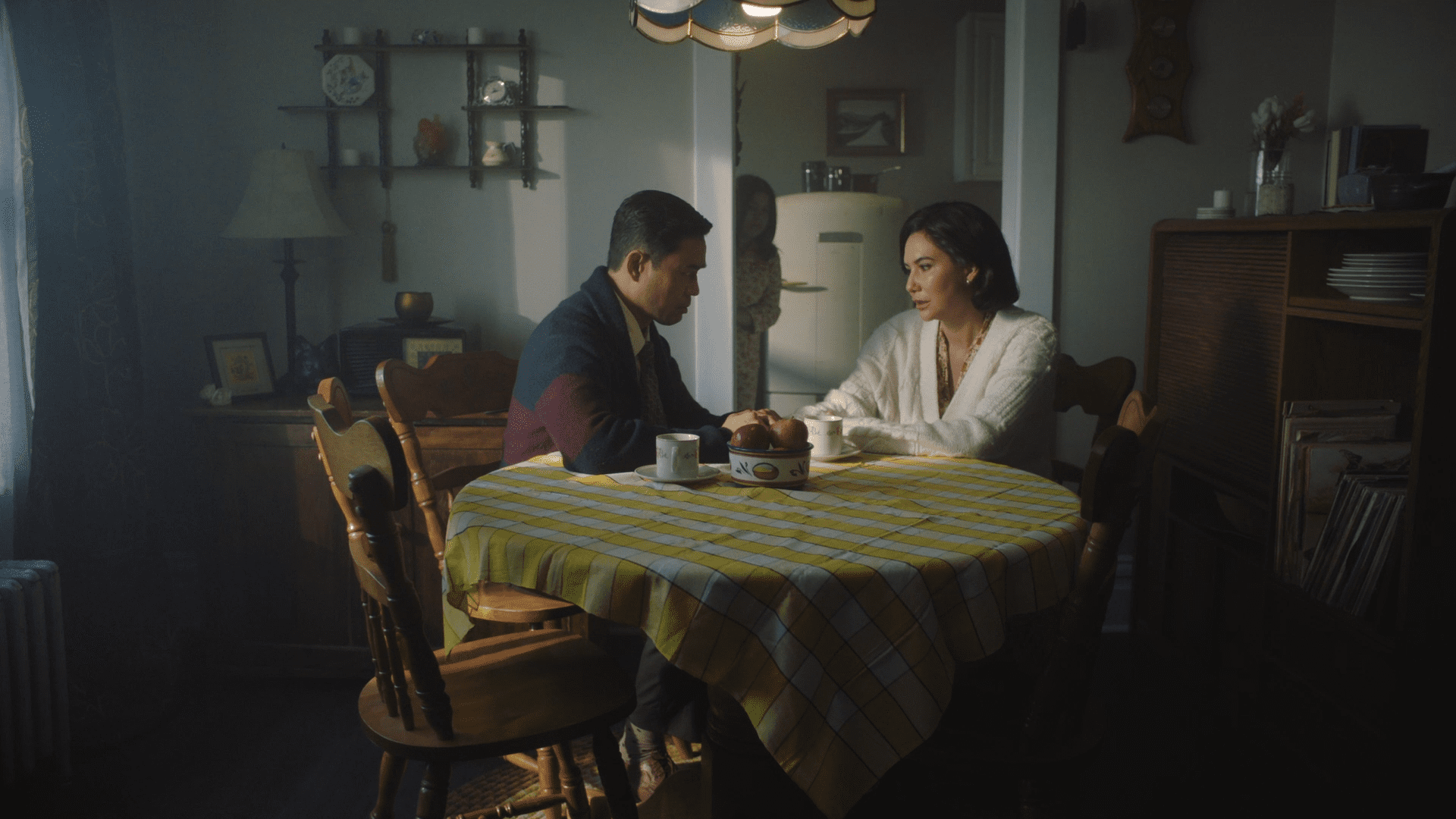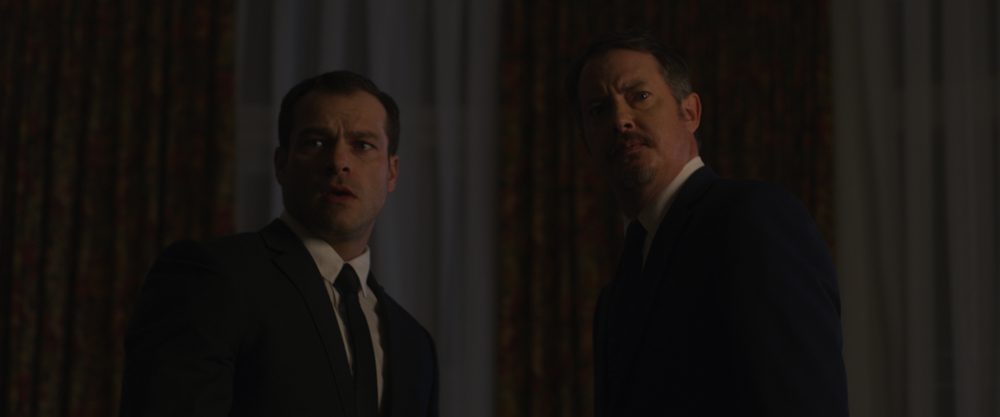I have a t-shirt that reads ?The older I get the better I was.? That sentiment immediately came to mind when I watched The Sense of an Ending. It is a story of memory of past times, but we see that those memories may not be a reliable recounting of what happened.
Adapted from the Man Booker Prize winning novel by Julian Barnes, the central character of the piece is Tony Webster (Jim Broadbent), a semi-retired recluse. When he gets a letter from someone about something that has been left to him, it starts his recollection of times and people from his past. The film wanders back and forth between the present day and his memories of the past. In the current sections, Tony deals with his ex-wife Margaret (Harriet Walter), daughter Susie (Michelle Dockery), and his first love from long ago Veronica (Charlotte Rampling). In the flashbacks, we meet the younger Tony (Billy Howle) and Veronica (Freya Mavor), and Veronica?s mother Sarah (Emily Mortimer).
Through it all we may think that Tony?s memories are accurate but, as the story progresses, he begins to have memories that he has long suppressed?memories that may change the way he understands himself after all these years?and may reflect on the person he has become.
There is a scene in flashback where Adrian (Joe Alwyn), Tony?s friend and rival at school, reflects on the impossibility of truly knowing history. There is always so much that is not known that we tend to make assumptions based on inadequate information. This plays out often both in Tony?s memories and in the world in which he is growing old.
How we remember (and what we choose to remember or forget) greatly impact on the way we understand our lives and?the world. Nostalgia often makes us think of ?the good old days?, but those days are often filled with darkness that we have forgotten. Certainly (as my t-shirt attests) that can create personal histories that are only real to us. It?s understandable that we concentrate on the good things from our past and let our mistakes slide into the void of forgotten history. Being able to do that sets us free to find happiness without the continued burden of guilt.
But this can also be found as something we do as a society. It was a happy coincidence that the day after I screened The Sense of an Ending I came across a reference to an article on Time.com written by Serenity Jones, President of Union Theological Seminary in New York. The article, written during last year?s election, reflects on the ferociousness of the discourse. She talks about our nation?s theological national story, but points out:
From a spiritual perspective, the problem is that this story has not incorporated a serious account of our wrongs. Our enduring flaws, profound failures, egregious harm and horrendous evils?none of these are part of our core story. The clearest example of this is our failure to sufficiently deal with our two most obviously horrific wrongs?the carefully orchestrated genocide of Native American and the 300-year-long story of the most brutal social system ever created, chattel slavery.
Whether it is on a personal level or as a nation, the flaws of our memory may make life easier for us on some levels. Forgetting past sins may well seem like a blessing. But it can also block us from experiencing repentance and the true freedom from our mistakes that can lead us to find new life ahead.
Photos courtesy CBS Films








